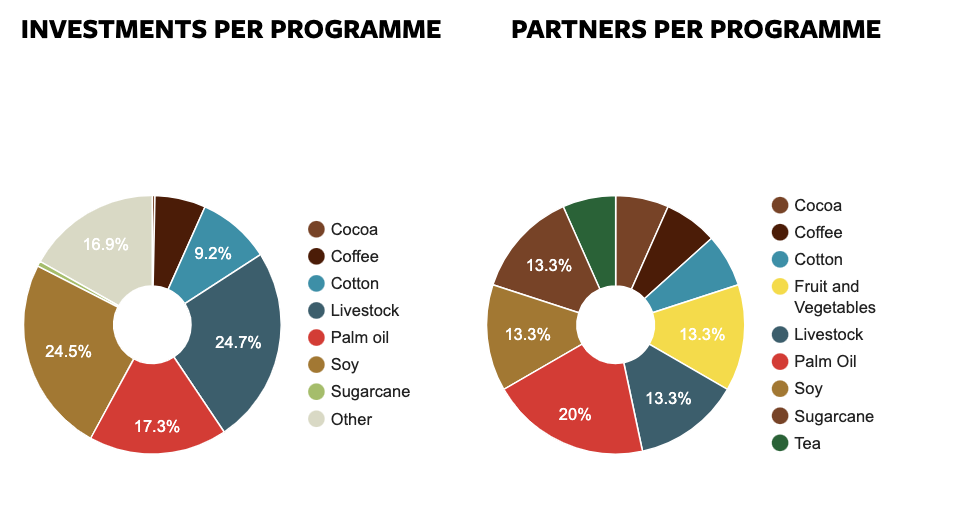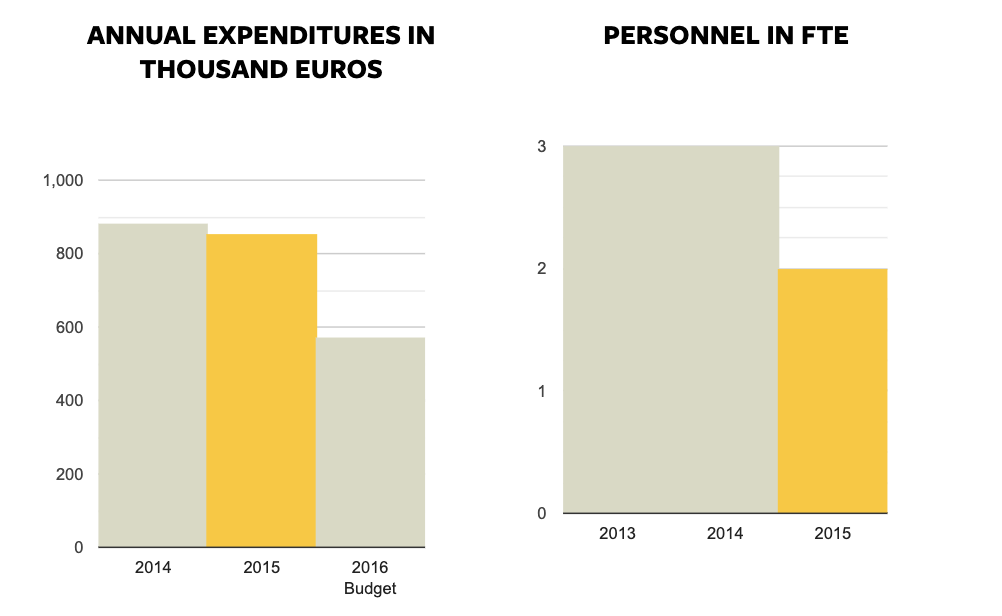REGIONAL COMMODITY PROGRAMMES
The Maso programme in Ghana, supported by the MasterCard Foundation, will train young cocoa farmers across eight districts in agricultural best practices, financial management and life skills. It will also prepare young entrepreneurs to establish cocoa-related enterprises and thus create more employment opportunities within the cocoa value chain. Solidaridad North America contributes oversight not only to the Maso programme but to the entire Youth Forward Initiative.

Solidaridad partnered with the Walmart Foundation to build upon a Better Cotton Initiative (BCI) training programme in China to address the needs of women farmers; primarily in leadership development and community mobilization. The project increased the participation of women in Solidaridad China’s ongoing BCI projects by 45%.

The Gran Chaco Americano in South America, one of the world’s most important and biodiverse biomes, is under threat due to unabated deforestation, driven mainly by livestock and soy production. Supported by the Gordon and Betty Moore Foundation and the Earth Innovation Institute, Solidaridad developed strategies to address this critical issue.

The growing demand for palm oil has led to the rapid expansion of palm oil plantations, resulting in destroyed forests and increased greenhouse gas (GHG) emissions. In Indonesia and Ghana, Solidaridad is leading the development of climate-smart oil palm production techniques that increase productivity of smallholder farmers, while reducing GHG emissions and preventing further degradation of forests.

A large region in the center of South America is facing rampant deforestation due to unrestrained expansion of soy farming. Solidaridad, with support from the Gordon and Betty Moore Foundation and the Earth Innovation Institute, undertook the development of strategies to decouple farming and deforestation in Argentina and Paraguay.

While companies worldwide demand sustainably produced sugarcane, finding adequate supplies is a challenge. To that end, Solidaridad North America, with Bonsucro, is promoting a precompetitive alliance of sugar users that transforms industry-wide practices. Chronic kidney disease among Central American sugarcane cutters is one of the many challenges to be addressed. Solidaridad is engaging companies such as Kellogg Company to combat this epidemic.

DEVELOPMENTS
US-based consumer goods companies are at the vanguard in making commitments to sustainable sourcing. General Mills, Gap Inc., Estée Lauder, Levi Strauss & Co, Kellogg, Ben & Jerry’s, Walmart, Eileen Fisher, Mars, PepsiCo, Coca-Cola, and many others, are each moving towards more sustainable sourcing goals, and in the process, discovering that making the commitments is often easier than implementing the steps necessary to achieve them. It is in helping them achieve these goals that Solidaridad North America, working closely with the entire Solidaridad Network, can have the biggest impact.

ACHIEVEMENTS
Solidaridad North America led the development of the successful proposal for a five-year, $15 million Youth Forward Initiative partnership with the MasterCard Foundation. This programme, starting in 2016, will address economic opportunities for youth in the cocoa sector of Ghana, working in concert with a number of Ghanaian partners.
The Kellogg Company committed to support Solidaridad’s development of training materials to address the causes of Chronic Kidney Disease from non-Traditional causes, an epidemic affecting sugarcane cutters in Central America. Solidaridad continues to build momentum across the sugar sector to raise awareness of the problem, promote adoption of good practices and improve stakeholder coordination to find innovative solutions.
The Estée Lauder Corporation engaged Solidaridad to explore alternative markets for the palm oil products produced by the Miskito Indians of Honduras, and previously used in the Ojon line of hair care products.
Through Walmart Foundation’s Global Women’s Economic Empowerment Initiative, Solidaridad North America continues to oversee a programme that builds upon the Better Cotton Initiative to address the needs of female farmers in China. The three-year programme will train 5,000 female farmers, furthering Walmart’s commitment to empower nearly 1 million women in its supply chains.
The David and Lucile Packard Foundation extended its support for a pilot programme for palm oil production in Indonesia that will increase yields and incomes of farmers, while avoiding both forest degradation and associated greenhouse gas emissions. Because deforestation and unsustainable agricultural practices are responsible for 25 percent of global carbon emissions, the Packard Foundation supports changes in land use policies and practices that reduce emissions while protecting biodiversity and enhancing livelihoods.
Under the Forests, Farms and Finance Initiative, led by Earth Innovation Institute, Solidaridad North America facilitated research in Paraguay and Ghana to develop strategies for transitioning to low emissions rural development, with the ultimate goal of decoupling agriculture and deforestation.
The Gordon and Betty Moore Foundation supported Solidaridad’s development of a strategy for sustainable agriculture approaches to reduce both deforestation and rampant agricultural expansion in the Gran Chaco biome of South America.

PARTNERSHIPS
The year 2015 was full of new opportunities to present our work in various fora and form new alliances. Solidaridad joined the Public-Private Alliance for Responsible Minerals Trade, a multi-sector and multi-stakeholder initiative supporting supply chain solutions to conflict minerals challenges in the Democratic Republic of Congo and the Great Lakes Region of Central Africa. We highlighted the Chronic Kidney Disease epidemic in the sugarcane industry at both the Kingsman Dubai and Kingsman Miami sugar conferences. We explored ways to address child labour in the Ghanaian and Ivorian cocoa industry at a United States Department of Labor workshop and participated in the Clinton Global Initiative meetings focusing on smallholder agriculture.
We presented Solidaridad’s work in the Bangladeshi textile industry at the Levi’s Open Source: Water Innovation meeting, and participated in a panel discussion on “Creating Impact for Small-Scale Suppliers” at the Social Capital Markets (SOCAP) 2015, both in San Francisco. Solidaridad North America participated in the World Cocoa Foundation meetings, World Bank/International Monetary Fund meetings and the Nestlé Creating Shared Value Stakeholder Convening at Washington, D.C. We also contributed in the Better Cotton Initiative USA Stakeholder Workshop at the Nike World Headquarters in Portland, Oregon.
ORGANIZATION
For Solidaridad North America, 2015 was a year of change and realignment. Sebastian Teunissen assumed the role of Managing Director in June. Solidaridad North America reaffirmed its role as the “face” of the Solidaridad Network in North America with an updated business plan. In October, Solidaridad’s Executive Board of Directors met in San Francisco, as guests of Solidaridad North America, to finalize a new strategic plan for the 2016-2020 period. Solidaridad North America staff actively participated in many of the global teams of the Solidaridad Network.
